Joy Marie Clarkson's Blog, page 13
June 24, 2018
Reading with Joy - Daisies Hard as Diamonds

This week we read chapters two, three, and four. (next week we'll read chapter five)
And don't worry... you're not too late to join! Just catch up on the podcasts, and dive on in!
This is an overview of what we talked about.
This week we mainly talked about one thing...
The Hardness of heaven:Why is heaven hard? Well, the question really ought to be why are the ghosts whispy. Consider this passage:
I gasped when I saw them. Now that they were in the light, they were transparent-fully transparent when they stood between me and it, smudgy and imperfectly opaque when they stood in the shadow of some tree. They were in fact ghosts: man-shaped stains on the brightness of that air. One could attend to them or ignore them at will as you do with the dirt on a window pane. I noticed that the grass did not bend under their feet: even the dew drops were not disturbed. Then some re-adjustment of the mind or some focussing of my eyes took place, and I saw the whole phenomenon the other way round. The men were as they always had been; as all the men I had known had been perhaps. It was the light, the grass, the trees that were different; made of some different substance, so much solider than things in our country that men were ghosts by comparison.
- Great Divorce, Chapter Three.
The ghosts have been diminished by Self-Choice.
This is based on Augustine of Hippo's idea of Self-Love versus God-Love.
Our good pal Saint Augustine of Hippo...
Augustine held that sin occurs when we use our natural capacity of desire poorly. He holds that desire is supposed to draw us out of ourselves and toward reality—toward the natural world, toward enjoyment of material goods, and toward love of others. All of these, when we love them in God, make us more real, and that they are all ultimately actions of loving God.
Sin, for Augustine, is when, instead of enjoying the thing itself as it is constituted in God, we begin to love the feelings it stirs up within us. Think of it this way: if I love my brother because he fixes my computer, or because he compliments me, I am not really loving my brother, I am loving myself; I am loving the feelings my brother stirs up in me. This is self-love.
So, for Augustine, sin is turning away from reality and pointing our desires inward at ourselves. When we do this we literally lose touch with reality, and our own being is diminished because we are no longer moving toward reality, but moving inward.
Lewis imagines this literally with the hardness of heaven. All of the ghosts are so self-involved that they have become less and less in touch with reality. So, in comparison to the pulsating, beautiful, reality of heaven, they are whispy. Or, as one of my favourite lines describes them "Man shaped stains on the brightness of that air."
This has interesting philosophical implications, but it also has very practical personal implications: Do I love people for who they are? Or do I love them for what they produce in me?
But heaven is hard in another way too.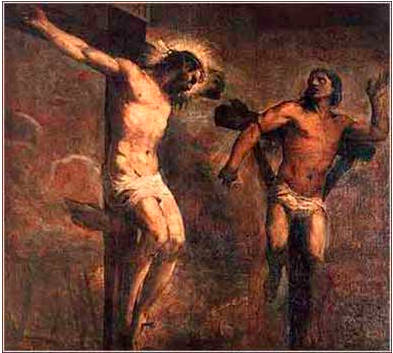
Christ and the Good Thief, Titian, c. 1566
People don't seem to want to stay in heaven.
This is demonstrated in the story of the Big Man, or, rather the Big Ghost. He is met by the bright spirit of a man who was his employee in life. In his life, this Spirit murdered someone, but later came to repent his actions. He is pictures as a sort of modern day thief on the cross that repents at the last moment. This bothers the Big Ghost. He is shocked to discover this spirit reached heaven before he did. He says, "If they choose to let in a bloody murderer all because he makes a poor mouth at the last moment, that's their lookout. But I don't see myself going in the same boat with you, see?" the Big Ghost has constructed a reality in his mind: he is good and decent and he deserves to be in heaven. But, of course, this isn't true: he is imperfect, unforgiving, hateful. I love this beautifully simple line from the Spirit:
"You weren't a decent man and you didn't do your best. We none of us were and we none of us did. Lord bless you, it doesn't matter. There is no need to go into it all now."
The Spirit wants the Ghost to embrace reality and be saved. The issue is that the Big Ghost insists on remaining in his own view of reality. He has turned inward, to a world of his own making.
The Big Ghost cannot be forgiven because he does not think he needs to be forgiven.His story ends tragically, as he limps back to the bus, happier to live in his own fantasy rather than the hard, but good, reality of heaven.
We begin to worry: can anyone stay in heaven?
I guess you'll just have to tune in next week to find out. :-)
This week we'll read chapter 5.I've flip flopped on how many chapters to do, but this week is full of content, so we'll just stick with one. I'll have the podcast out on Wednesday.
If you want to join the discussion, check out the Facebook or Twitter links here...
Reading with Joy - Twitter
Oh, and never forget: the podcast is on iTunes if that's easier for you!
What did you like? What confused you? What do you think? Chip in with your thoughts!
peace, love,
joy
p.s. this post probably has grammatical mistakes because I'm in a hurry. Mercy, reader.
June 11, 2018
Banality of Vice - Book Club, Week One

Richard Oelze, “the Expectation,” 1936, MOMA
I have often thought that my personal hell would be waiting in line at the DMV for eternity. For Lewis, it seems his personal hell would be waiting in a bus line. In the first chapter of The Great Divorce we find ourselves, with the narrator, in a bus queue on "a long, mean street" in what can only be described as a drab and nondescript street. There's an underlying annoyance, a fussiness, and then, suddenly, violence.
What on earth is wrong with humans?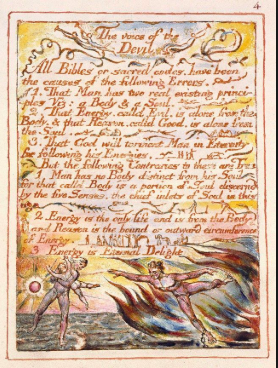
"Those who restrain desire do so because theirs is weak enough to be restrained; and the restrainer, or Reason, usurps its place and governs the unwilling. And being restrained it by degrees becomes passive, till it is only the shadow of desire."
The idea of a "shadow" of desire will become important later...
Note. The reason Milton wrote in fetters when he
wrote of Angels and God, and at liberty when of Devils
and Hell, is because he was a true Poet and of the Devil’s
party without knowing it.
— - William Blake, The Marriage of Heaven and Hell
Blake is using satire to criticise the banal evil he perceived in the corpulent, unempathetic wealthy rulers of England who claimed temperance and restraint as the ultimate virtues while exploiting the poor and ignoring the helpless.
Lewis agrees with Blake that desires are important, and that a simplistic restraint is not the answer. But, certainly, a wild pursuit of desire without direction is not the answer either.

Listen in to my discussion with Joel on the podcast to hear more.
And chime in with your own thoughts!
Answer these questions:1. Why do the people want to get on the bus? what is "wrong" with these people?2. What stuck out in this chapter to you? What did it remind you of? How did it make you feel?Chime in on Facebook or Twitter to discuss!Twitter - Reading with Joy
Facebook - Joy Clarkson
Oh, and if you want to learn a little more about William Blake, Check out Malcolm Guite's podcast series on him at the link below. Malcolm is an Anglican priest, Poet, Cambridge professor, and dear family friend. I recommend all his writing!
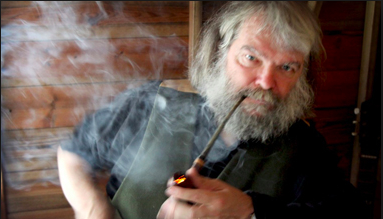
Blake - Prophet and Visionary pt. 1
Read chapters 2-4!
Cheers friends! See you next week!
June 3, 2018
Reading with Joy - A Book Club
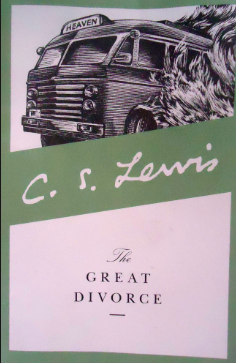
No soul that seriously and constantly desires joy will ever miss it. Those who seek find. To those who knock it is opened.
- C.S. Lewis, The Great Divorce (1945).
Why would anyone leave if they were offered a place in heaven? I suppose you'll have to read to find out!!I did my masters dissertation on this book, so I am brimming with extraneous, but (in my humble opinion) delightful details. It is a strange book, a humorous book, a moving book. We will learn about William Blake, Saint Augustine, desire, resurrection, George MacDonald, the Lust Lizard, and so much more... :-DWhat I love best about this book is that it is one that, as St. Bonaventure would say, illuminates the mind and kindles the heart. I have learned so much about it, but it also has been instrumental in shaping how I think about choice, desire, redemption, and many other things.Prediction: scenes from this book will stick with you the rest of your life.

Get the book...
(any copy will do)

Read the book
(or listen on audio book)

Smell the book!
(books smell very nice)
How it will work...Each week:- I'll let you know which chapter to read (we'll do 1 or 2 depending on the week... they're really short chapters, and it is an easy read).- I'll do a podcast discussing that week's chapter.- I'll post some discussion questions on Facebook and Twitter. Chip in your opinion, tell people what you found interesting, difficult, and beautiful, respond to other people's opinions. And you can also use those forums to let me know any questions you have for me!Great Divorce, C.S. Lewis - Full Audio Book
Discussion Forum Options:
I'll have two options for the discussion forums: Twitter and Facebook. If you don't have either of these, I would suggest getting a Twitter just for the book club. You can delete it afterwards, and Twitter does not use a lot of your personal data. Make sure your profile is public, though or people won't be able to see your comments! Pick which forum you want (or both!) and follow/like them at the following links:
TWitter- Reading with Joy
Facebook- Joy Clarkson
HAShtag: #gr8div #readingwithjoy
Use these hashtags when posting on social media (instagram and twitter particularly) so other readers can find you... and vice versa!
Several other notes...Any edition of the book will do!My personal advice is to go for the one with the prettiest cover. ;-)
However, I've also attached a free PDF of the book, or, if you'd rather listen to the audio book, a youtube version of that. And the reader isn't too bad!
Great Divorce - Free PDF
An extra tidbit...I enjoyed this video of Bishop Baron talking about his favourite bits of the Great Divorce. Take it as a Hors d'oeuvre . :-)
Next week!!- listen to the introductory episode.- read the introduction and first chapter- invite a friend to join! obviously.
I can't wait friends! I think this will be good fun. Let me know if you have any questions. :-)
And don't forget to listen to the introductory episode!!
May 7, 2018
The Impossible Task and the Peaceable Kingdom

Philip Jones Griffiths
And the leaves of the tree were for the healing of the nations.
- Revelation 22:2
The sixties were an anxious time...Wikipedia defines the Sixties in the following way: "The term "1960s" also refers to an era more often called the Sixties, denoting the complex of inter-related cultural and political trends around the globe. This "cultural decade" is more loosely defined than the actual decade, beginning around 1963 with the Kennedy assassination and ending around 1974 with the Watergate scandal."
In the sixties, the world always felt like it was ending. After two wars meant to end all wars, confusing conflicts continued all over the world, and communism moved through Europe, South America, and Asia, often with violence in its wake. Martin Luther King Jr. fought bravely and, sometimes it seemed hopelessly, for civil rights. Settling into the new technology, there were many plane crashes. Socially, everything was being tested, rejected, re-entrenched, and redefined. Nothing felt steady.
And most unsettling of all, the threat of nuclear annihilation hung over every moment.
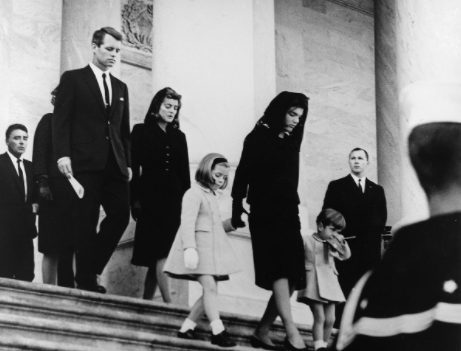
The Sixties madness:- Assassinations: John F. Kennedy, Martin Luther King Jr., Malcolm X, Rober Kennedy.- War/Violence: Cuban Missile Crisis (1962), Vietnam War (1955-1975, 58,220 casualties), 16th Street Baptist Church Bombing (1963), - Political Upheaval: Watergate Scandal(1972), Battle for Civil Rights (Civil Rights Bill, 1963), Communism Movements (Cuba, USSR, Vietnam, Laos, China).- Cultural Changes: Sexual Revolution, Civil Rights, Woodstock.
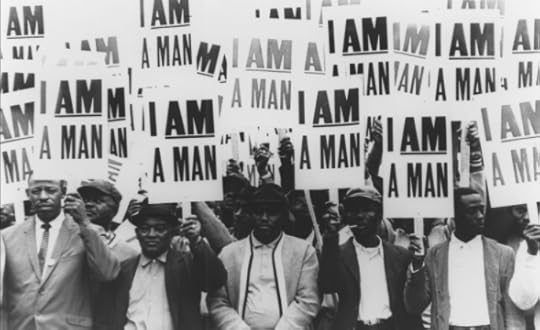

In the wake of this general unrest comes some of my favourite music. People in this era seem to be asking...
"How do we live in times like these? How do we love and live and build something in a world that always seems to be falling apart?"Perhaps that is why it is so easy to connect with music from this era. Because we still ask the same questions.

Getty Images - Terry Fincher
The music from this time expresses this uncertainty and frustration. It seeks to figure out how to live in a weird and unsteady world.
Sometimes this was in a playful way, like in Joni Mitchell's almost humorous song "Big Yellow Taxi."

Scarborough Fair/Canticle (1966)Simon and Garfunkel
Written in the middle of the sixties, "Scarborough Fair" or "The Canticle" by Simon and Garfunkel is a song that beautifully illustrates the tension of wanting to live well, lovingly, and fruitfully in a violent and unsettled time. It is a story song in which the singer relays a message to a lost love, giving her tasks to do. If she accomplishes all the tasks, they will be reunited. It begins describing the lover in the past terms ("She once was a true love of mind") but sets the tasks as a predicate for a possible future ("Then she'll be a true love of mine"). In that possibility there is hope.
But there is a catch: all the tasks are impossible.The song is an adaptation of a 17th century British folk tune.It is thought that perhaps the song was written in response to one of the plaques, which wiped out much of the population of Europe. Just as the tasks are impossible for the lover to accomplish, it is impossible for those who have been lost to death to be reunited.
Three Impossible Tasks:
- Weaving a Cambric shirt with no seams
- Finding an acre of land between the shore and the ea
- Washing the Cambric shirt without getting it wet
Here is a beautiful rendition of the traditional Folk tune.
Lyrical Comparison:
Here are the lyrics of both the original ballad and Paul Simon's rewrite.
Original Balad:
Are you going to Scarborough Fair?
Parsley, sage, rosemary, and thyme;
Remember me to one who lives there,
For she was once a true love of mine.
Tell her to make me a cambric shirt,
Parsley, sage, rosemary, and thyme;
Without any seam or needlework,
Then she shall be a true love of mine.
Tell her to wash it in yonder well,
Parsley, sage, rosemary, and thyme;
Where never sprung water or rain ever fell,
And she shall be a true lover of mine.
Tell her to dry it on yonder thorn,
Parsley, sage, rosemary, and thyme;
Which never bore blossom since Adam was born,
Then she shall be a true lover of mine
Paul Simon Version:
Are you going to Scarborough Fair
Parsley, sage, rosemary and thyme
Remember me to one who lives there
She once was a true love of mine
On the side of a hill in the deep forest green
Tracing of sparrow on snow-crested brown
Blankets and bedclothes the child of the mountain
Sleeps unaware of the clarion call
Tell her to make me a cambric shirt
Parsley sage rosemary and thyme
Without no seams nor needle work
Then she’ll be a true love of mine
On the side of a hill in the sprinkling of leaves
Washes the grave with silvery tears
A soldier cleans and polishes a gun
Sleeps unaware of the clarion call
Tell her to find me an acre of land
Parsley sage rosemary and thyme
Between the salt water and the sea strands
Then she’ll be a true love of mine
War bellows blazing in scarlet battalions
Generals order their soldiers to kill
And to fight for a cause they have long ago forgotten
Tell her to reap it with a sickle of leather
Parsley sage rosemary and thyme
And gather it all in a bunch of heather
Then she’ll be a true love of mine
As you can see, Simon both truncates some of lyrics, and also adds to them. It was an anti-war song written in response to the Vietnam war
On the Side of a Hill
Paul Simon:
On the side of a hill in a land called "Somewhere"
A little boy lies asleep in the earth
While down in the valley a cruel war rages
And people forget what a child's life is worth
On the side of a hill, a little cloud weeps
And waters the grave with its silent tears
While a soldier cleans and polishes a gun
That ended a life at the age of seven years
And the war rages on in the land called "Somewhere"
And generals order their men to kill
And to fight for a cause they've long ago forgotten
While the little cloud weeps on the side of a hill
As if two voices answer eachother, Simon places the tasks that the lover must do in counterpoint with the scenes of war and upheaval from his other song. One voice sings of tasks that will restore love, which are all imagined in agrarian terms (land, weaving, washing). The other voice sings about a war that never ends but no one can remember how it started.
By weaving these two songs together, Simon makes a compelling point:trying to live a loving and fruitful life in a violent and unsteady time can feel like an impossible task.One voice sings of a gentle, loving, planted but impossible life.The other of endless wars and forgotten innocence.Is it an endless battle?
The first answer is no. There are always, as Mister Rogers reminds us, helpers. People who stand against violence with kindness. People who sew mercy where harshness prevails. People who sew gardens while others destroy the earth. People who lay down their lives while others would destroy life.
But sometimes, that is not enough. We need more of a promise, more of a hope. Something like this:
They will not labor in vain,
nor will they bear children doomed to misfortune;
for they will be a people blessed by the Lord,
they and their descendants with them.
Before they call I will answer;
while they are still speaking I will hear.
The wolf and the lamb will feed together,
and the lion will eat straw like the ox,
and dust will be the serpent’s food.
They will neither harm nor destroy
on all my holy mountain,”
says the Lord.
— Isaiah 65:23-25
The strange hope of the Kingdom of God is one in which the very fundamental nature of reality is flipped, redeemed. That is what we long for. That is what Edward Hicks sought in his paintings.
The Peacable KingdomEdward Hicks (1780-1849)Hicks, a Quaker preacher, was a pacifist. He held the Quaker doctrine of the Inner Light, which held that as you devoted yourself to God and turned your will to him, you would become redeemed and become and agent of redemption. He worked out this idea in his 62 versions of the painting "The Peaceable Kingdom" based on Isaiah 11:6-8 and Isaiah 65 23-25. These verses depict a world where want, need, and violence are no longer the fundamental realities, but where neither harm nor destruction will rule. He painted these pictures to work out that idea again and again.
As you bow the King Jesus, you begin to live like a subject of his Kingdom, where peace and justice and mercy are the ruling principles.As members of the peaceable kingdom, we can sew the seeds of peace as we live faithfully. And we can trust that death, violence, and ugliness will not have the final word. The task of goodness is not impossible, but the world is still fallen. Hope sews the seeds that will someday bloomIn the new Kingdom.The Peaceable Kingdom.Extras:Sixties playlistNew Two Benedictions Music... support us!!If you donate to the Patreon account you'll get the livingroom version of our new song (vocals+piano), a video of the writing process. When we reach our goal ($200) we'll release a live performance and a video talking about our inspiration for the song exclusively for Ptfatreon supporters.PLEASE NOTE: The way our Patreon works is instead of paying a fee monthly, you are signing up to pay a fee whenever we release a new song. This gets you the song as well as exclusive video content, and other perks along the way! Donating helps us start work on a new album!
Two Benedictions Patreon
To get the new song:
- Go to the Patreon Page (patreon.com/twobenedictions or the link above)
- Go to the first post "New Song and Videos!"
- Click "unlock" donate 5 dollar
And once you've unlocked the song, you'll be signed up for updates as we write the album!
I hope you like it! I love the new song. I think you will too.Peace friends! and Much love!
April 24, 2018
Do Something That Won't Compute

The mad farmer himself.
Mad Farmer's Liberation Frontby: wendell berry
Love the quick profit, the annual raise,
vacation with pay. Want more
of everything ready-made. Be afraid
to know your neighbors and to die.
And you will have a window in your head.
Not even your future will be a mystery
any more. Your mind will be punched in a card
and shut away in a little drawer.
When they want you to buy something
they will call you. When they want you
to die for profit they will let you know.
So, friends, every day do something
that won’t compute. Love the Lord.
Love the world. Work for nothing.
Take all that you have and be poor.
Love someone who does not deserve it.
Denounce the government and embrace
the flag. Hope to live in that free
republic for which it stands.
Give your approval to all you cannot
understand. Praise ignorance, for what man
has not encountered he has not destroyed.
Ask the questions that have no answers.
Invest in the millennium. Plant sequoias.
Say that your main crop is the forest
that you did not plant,
that you will not live to harvest.
Say that the leaves are harvested
when they have rotted into the mold.
Call that profit. Prophesy such returns.
Put your faith in the two inches of humus
that will build under the trees
every thousand years.
Listen to carrion – put your ear
close, and hear the faint chattering
of the songs that are to come.
Expect the end of the world. Laugh.
Laughter is immeasurable. Be joyful
though you have considered all the facts.
So long as women do not go cheap
for power, please women more than men.
Ask yourself: Will this satisfy
a woman satisfied to bear a child?
Will this disturb the sleep
of a woman near to giving birth?
Go with your love to the fields.
Lie down in the shade. Rest your head
in her lap. Swear allegiance
to what is nighest your thoughts.
As soon as the generals and the politicos
can predict the motions of your mind,
lose it. Leave it as a sign
to mark the false trail, the way
you didn’t go. Be like the fox
who makes more tracks than necessary,
some in the wrong direction.
Practice resurrection.

It is so easy to boil down our life values to things we can measure: money, productivity, success, time clocked at work, grades gotten at school, likes, retweets, anything that can be added up and understood. But I think most of us feel intuitively that to treat life in this way is to miss most of its richness. In fact, I think it can lead to despair. Wendell Berry agrees.
For quite a while it has been possible for a free and thoughtful person to see that to treat life as mechanical or predictable or understandable is to reduce it. Now almost suddenly, it is becoming clear that to reduce life to the scope of our understanding (whatever ‘Model’ we use) is to enslave it, make property of it, and put it up for sale.
This is to give up on life, to carry it beyond change and redemption, and to increase the proximity to despair.
— Wendell Berry, Life is a Miracle
But, as Berry notes, most of modern life would have us see the world this way. See the world like a machine. And such a point of view. So how do we resist?
we reject the life of machines. we embrace the life of mystery.we live like the mad farmer.This poem is, literally a manifesto, a public declaration of intentions and aims. I love it. Here are three things I think it inspires us to do...
1. Purposefully encounter mystery.

Give your approval to all you cannot
understand. Praise ignorance, for what man
has not encountered he has not destroyed.
This week, find a way to bring yourself into the presence of mystery. This reminds you that life is not a series of problems to be solved, but mysteries to be embraced, lived through, and given thanks for. Embracing mystery helps us get over ourselves. It helps open our eyes to the wonder all around us.
Ideas;
1. Go on a hike somewhere beautiful. 2. Listen to a beautiful piece of music. I suggest this one...3. Go read about physics. It will blow your mind.
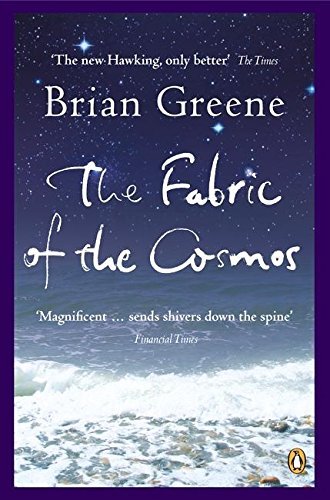
The Fabric of the Cosmos: Space, Time and the Texture of Reality (Penguin Press Science)
By Brian Greene
2. Invest in something that will outlive you

Flowers from my garden that the last tenant planted.
Invest in the millennium. Plant sequoias.
Say that your main crop is the forest
that you did not plant,
that you will not live to harvest.
Living in St. Andrews reminds me all the time of the stories and legacies people leave behind them. Good and bad, they're written into the streets and walls of this town. In a world that is obssessed with "quick profit" and everything "ready made" it can be easy to forget that we will die, and that behind us a story will linger, for better or worse. I was even reminded of it today as I picked flowers from my garden that someone else planted. We will all leave something behind us, but what will we leave?
Ideas:
- Plant a community garden (someone else may gather from your garden one day!)
- Teach someone something (knowledge and skill lives on in the person you teach)
- Start a community program that could help people long after you're gone!
- Give lifegiving words (they stick longer than you'd think!)
Ask yourself: Who am I living to satisfy?Ask yourself: Will this satisfy
a woman satisfied to bear a child?
Who are you living to satisfy? A boss? Social media? A parent? A child?
This week, evaluate who it is that you are living to satisfy. Think about who you want to live to satisfy. What would it look like to live your life for a different audience?3. Pursue Delight
In the middle of my crazy week editing my Phd chapter, I got to go to my friend's farm cottage. We held baby lambs. It was perfect.
Expect the end of the world. Laugh.
Laughter is immeasurable. Be joyful
though you have considered all the facts.
I think one of the sicknesses of our world is cynicism. One of the best tools to fight cynicism is delight. I often think about this when I look at my little niece Lilian Joy. Have I introduced you to my name-sake niece? She arrived into the world on March 2nd during England's biggest storm in 30 years. Already a drama queen. She has the most dramatic hands, and already knows how to stick out her tongue. Isn't she wonderful?

Lilian keeps me from being cynical. Not only because she is adorable (and who could feel cynical looking at that little button nose??!), but because when I see her, I know I do not have the luxury of cynicism. I must make a better world for this little one.
She delights me. And in that delight I'm steeled against the darkness of the world. Ready to fight again.
I think that's a pretty good argument for delight.
So how will you find delight this week?Some of my suggestions: play with a childwatch a beautiful movie/read a beautiful book.cookinggardeningAnd finally remember: no sorrow is final, do defeat is complete, the war for goodness is slowly being won...practice resurrection
April 10, 2018
Women's Friendships in Film and Television

From Anne and Dianna traipsing through the green valleys of Avonlea, to Leslie and Ann trying to build a city park, to Sister Monica Joan and Evangelina, some of my favourite stories are about women's friendships. In my own life, my friendships with other women have been profoundly formative, helping me grow in all areas of my life: emotional, intellectual, social, and physical. The fellowship, delight, and power of women bonding together in friendship cannot be overstated.
This week, my best friend Elena and I look at depictions of women's friendships in film, and point out some principles and wisdom for our own friendships.
This is Elena with her pet bunny Lucy.
Elena is my go-to film and television expert. She studies politics and religion as a masters student at Harvard University. She also works in film, specialising in screenwriting for television. Perhaps also loves bunnies, and was my college roommate, partner in competitive debate, and general shenanigan compatriot.
For pithy thought and lots of pictures of cute cafes and cute bunnies, follow her at the following links...
Elena's Twitter
Elena's Instagram
PSA: I'm writing a book! Keep your eyes peeled for announcements about "Girls Club," a book about friendship. I'm writing it with my mother and sister, and I can't wait to share it with you all.
Without further ado, enjoy this week's episode looking at different sorts of friendships in teleivion and film.
1. Sidekick Friendship:
Leslie and Ann being pals.
In this sort of friendship, one friend is the hero or important one, and the other is the sidekick. The hero in these stories is seen as the interesting one, with a complex internal world, and a high stakes storyline. The sidekick is seen positively, but we only know her and care about her by her relationship to the hero. This is one of the most commonly depicted friendships.
Examples:
Anne Shirley and Dianna Barry, “Anne of Green Gables” (1989)Leslie Know and Ann, “Parks and Recreation (2009)Emma Woodhouse and Harriet Smith, “Emma” (2009)
Do nothing from selfishness or empty conceit, but with humility of mind regard one another as more important than yourselves.
— Philippians 2:3
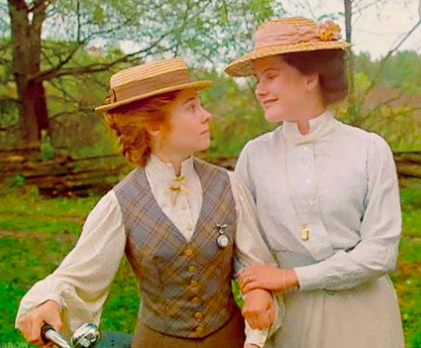
Friendship tip: Friendships should be equal. Friends should see each other as equally important, interesting and worthwhile, and should actively seek to support one another in their own stories.
2. Co-dependent or Amoeba Friendship:

These friendships are when characters are knowable only as a pair or group and not as independent individuals. The issue with these friendships is that there’s a confusion with where one friend ends and the other begins. They both need each other, but the both resent each other, whether subliminally or overtly, a little for needing each other.
Examples:
Lorelei and Rory Gilmore, “Gilmore Girls” (2000).
The most sublime act is to set another before you.
— William Blake, Marriage of Heaven and Hell
Friendship tip: Friends should acknowledge and love one another’s seperateness, encouraging each other towards a full expression of who they are uniquely created to be.
3. Mean Girls Friendship:

This is a friendship founded around power, manipulation, and, particularly, competition. The depiction of these sorts of friendships are often about young women, and marketed at young women. We think this is because young womanhood is a time when we are learning to navigate social life and learning to master their sense of power and agency. While this depiction is pervasive, we think it is more incidental than fundamental. We have all encountered mean girls, but it needn’t become a fundamental reality of women’s connections.
Examples:
Mean Girls Pretty Little LiarsLady Bird
Friendship tip: Don’t be a mean girl! In friendship, value cooperation over competition. Value honesty over impressiveness. Refuse to enter the fray.4. Kindred Spirit Friendship:

These are friendships developed around a common goal or experience. It is a friendship about something, whether that be a social movement, the ups and downs of life, or a deep love of poetry. These friendships are developed by two (or more!) people who bring all that they are to the table, and celebrate each other's personality, gifts, and independence. They stick through life as fellow travelers.

The very condition of having Friends is that we should want something else besides Friends. Where the truthful answer to the question “Do you see the same truth?” would be “I see nothing and I don’t care about the truth; I only want a Friend,” no Friendship can arise - though Affection of course may. There would be nothing for the Friendship to be about; and Friendship must be about something, even if it were only an enthusiasm for dominoes or white mice. Those who have nothing can share nothing; those who are going nowhere can have no fellow-travellers.
— C.S. Lewis, The Four Loves
Friendship Tip: Make your friendships about something bigger than you, be it learning, taking care of your community, or conquering the challenges of life. Celebrate victories, mourn losses, and enjoy the mundane.
That's all for this week, friends! I'm praying for you all.
Much love,
Joy and Elena

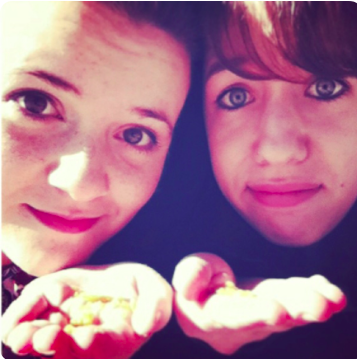
Here pictured: freshmen elen and joy eating goldfish which embody three of their greatest delights: salt, cheese, and carbohydrates.
Joy Marie Clarkson's Blog
- Joy Marie Clarkson's profile
- 227 followers



